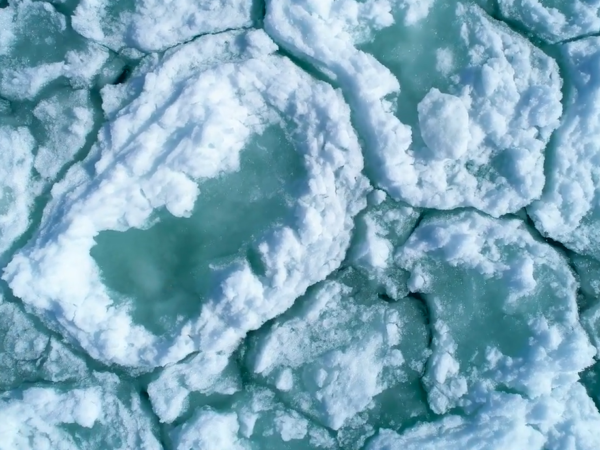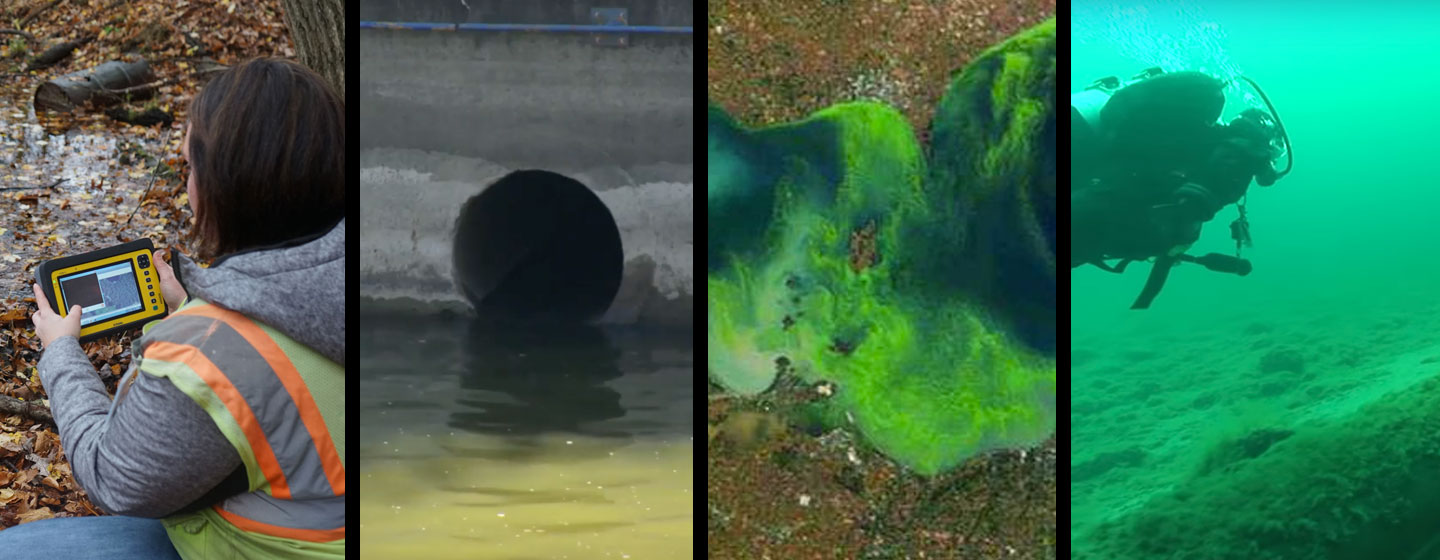
Dems win 6 of 7 Great Lakes state races for governor including an upset in Wisconsin
Reversing eight years of Republican dominance, Democrats won six of seven gubernatorial races in Great Lakes states’ midterm elections.
Gretchen Whitmer won handily in Michigan while Tony Evers appears to have narrowly upset two-term incumbent Scott Walker in a tight race in Wisconsin. J.B. Pritzker easily won in Illinois.
The only Republican win was in Ohio where current Attorney General Mike DeWine prevailed rounding out results in the core Great Lakes states.
In the outlying states Tim Walz won in Minnesota, Tom Wolf in Pennsylvania and Andrew Cuomo in New York. There was no gubernatorial race in Indiana.
Water on the ballot
While bread and butter issues like education and the economy lead the way, for Whitmer and Wisconsin’s Evers, clean water and environmental protection issues were part of their campaigns.
Both Michigan and Wisconsin have water quality problems related to safe drinking water. In Michigan, the emerging contaminant PFAS is prevalent and a state of emergency was declared near Kalamazoo last summer.
Wisconsin has been beset with drinking water concerns due to pollution coming from large-scale farming known as Concentrated Animal Feeding Operations.
Wisconsin has also relaxed wetland protections and air quality standards while pursuing economic development that includes luring tech-giant Foxconn to the state. The state approved a controversial diversion of Lake Michigan water to support Foxconn. A legal appeal of the diversion by environmental groups is in the early stages.
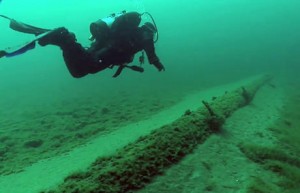 Michigan’s Whitmer will also have to decide how to proceed with the Enbridge Line 5 oil pipeline that runs under the Straits of Mackinac between Lakes Michigan and Huron. Outgoing-Gov. Rick Snyder has made a deal to replace the aged pipeline with one that runs underground through the Straits.
Michigan’s Whitmer will also have to decide how to proceed with the Enbridge Line 5 oil pipeline that runs under the Straits of Mackinac between Lakes Michigan and Huron. Outgoing-Gov. Rick Snyder has made a deal to replace the aged pipeline with one that runs underground through the Straits.
On the campaign trail, Whitmer has called Snyder’s Line 5 deal “troubling” and suggested she could mount a legal challenge but hasn’t provided specifics only saying she “wants the oil out of the water.”
“Appointments are policy”
Two critical environmental appointments Whitmer will make are to head Michigan’s departments of Environmental Quality and Natural Resources.
Those positions are “vitally important,” veteran Michigan and Great Lakes policy expert Dave Dempsey told Great Lakes Now.
“Appointments are policy, and the choice of directors will have a lot to say about the governor’s approach,” Dempsey said.
He indicated that Whitmer, working with a new attorney general, will have options for a legal challenge if she pursues that route on Snyder’s Line 5 deal.
Dempsey noted that Michigan’s drinking-water issues will be best served if there’s bipartisan support to resolve them, and Whitmer will have to work to secure that support. Failure to strike deals with the Republican legislature plagued the tenure of Michigan’s last Democratic governor, Jennifer Granholm.
Dempsey has been an adviser to former Michigan Gov. Jim Blanchard and the International Joint Commission. He is currently a senior adviser to the nonprofit FLOW.
Lake Erie looms
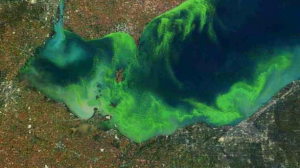 Governor-elect Mike DeWine will inherit Ohio’s Lake Erie algae problems which have gone unresolved since a large 2011 bloom and the algae-fueled 2014 Toledo water crisis.
Governor-elect Mike DeWine will inherit Ohio’s Lake Erie algae problems which have gone unresolved since a large 2011 bloom and the algae-fueled 2014 Toledo water crisis.
In the waning months of his term, outgoing-Gov. John Kasich tried to impose tighter standards on agriculture pollution, the primary source of the blooms. But implementation has been stalled in the state bureaucracy until at least February.
DeWine will have to walk a political tightrope between the demand for clean and safe drinking water in Lake Erie’s Western Basin and the powerful agricultural lobby that has resisted regulations of their operations.
In an October debate, DeWine said he supported a bond issue that would provide funds to deal with the algae problem and he called for everyone to pull together on the issue.
Approximately $75 million in Great Lakes restoration funding has been expended to combat Lake Erie’s algae since 2010 according to the U.S. EPA, but results have been negligible.
Asian carp deal in Illinois
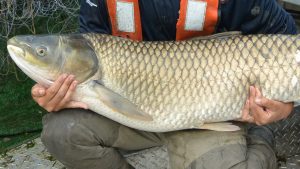
Grass Carp image courtesy of Fisheries and Oceans Canada/Pêches et Océans Canada
Michigan Gov. Snyder has been trying to broker a deal with now outgoing Illinois Gov. Bruce Rauner to fund infrastructure changes to the Chicago waterways system that would block the Asian carp advance.
Illinois has long-resisted the region’s calls for infrastructure modifications to locks and dams, choosing to side with the barge shipping industry that opposes them. Absent a last-minute deal, the issue will land on the desk of incoming Gov. J.B. Pritzker who will inherit a complex environmental problem with region-wide implications.
In U.S. Senate races, six of seven incumbent Great Lakes senators, all Democrats, won re-election with only Democrat Joe Donnelly of Indiana losing his seat.
In state attorneys general races, Democrats unseated Republican incumbents in Michigan and Wisconsin and retained the office in Illinois and Minnesota. The Ohio attorney general remains a Republican.
Attorneys general races have become increasingly important as they have collaborated along party lines to challenge federal policies related to climate change and clean water.



